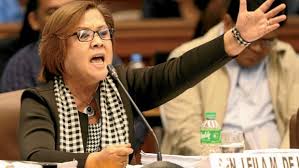NEW YORK — Last week, from Tehran to Seoul, from Manhattan to Manila, the observance of International Women’s Day saw a global outpouring of support for and commitment to the essential and enriching role females have always played in our lives.
At Plaza Miranda, in downtown Manila, activists clad in pink and purple protested against Philippine President Rodrigo Duterte, labeling him one of the worst violators of women’s rights in Asia. Singing and dancing, the protesters handed red and white roses to women, whether mothers, sisters, daughters, or widows, whose men had been slain under Duterte’s crackdown on illegal drugs, on mere suspicion of being part of the illicit trade.
Part of what imparts energy to the current iteration of the women’s movement has been the #MeToo response to the ongoing sexual abuse of male privilege, as exemplified by the former Hollywood power broker Harvey Weinstein, now reportedly seeking treatment in a sex addiction center even as his legal team prepares a defense against the many suits filed against him.
In our own precolonial herstory, and origin narratives, there has never been any doubt of a woman’s importance and equal status. According to the ancient creation story, the male Malakas (Strength) and the female Maganda (Beauty) sprang forth from bamboo at the same time. In contrast, the Bible has Adam being fashioned first, and Eve is then created from his rib, setting down the foundation of the patriarchal system, that man comes first, and woman needs follow in his shadow, thus ensuring that in the Judeo-Christian tradition, the supremacy of male poo-bahs is not to be questioned.
Wanting to bolster their nationalist credentials, the late, unlamented conjugal dictators Ferdinand and Imelda Marcos found that Malakas and Maganda perfectly suited the images they wished to project of themselves, giving rise to the quip that there were two martial-law governments in place: His and Hers.
In the account of Pigafetta, chronicler of the 16th-century Ferdinand Magellan expedition that purportedly was the first to circumnavigate the world, we read of how the women of Zebu (Cebu in today’s orthography) were the equals of men and even took the lead when it came to sex. Virginity was no big deal, and was in fact seen as a drawback to marriage.
Even when the colonizers brought in their patriarchal baggage, most embedded in the Catholic Church, underneath all that male braggadocio lay still the values of a matriarchy. When in 1896 the Katipunan took up arms against Spain, their tenets stated that women were to be seen as equal partners in the struggle for an independent country. Of the many women who were active in the revolution, my favorite is Melchora Aquino, affectionately called Tandang Sora (Old Sora). She aided the rebels, and it was in her yard where they tore up their cedulas, or tax certificates. Exiled by the Spanish to the Marianas, she was brought back to the country when the United States got to be the newest colonizer. She refused however to pledge allegiance to the Stars and Stripes, and died in 1919, at the age of 107.
While the U.S.A. agonizes over whether a woman, in the words of Professor Henry Higgins, the domineering character in My Fair Lady, can “be more like a man,” we have had two female presidents.
One would think the current Philippine head of state Rodrigo Roa Duterte would at the very least be sensitive to women’s issues and sensitivities. Quite the contrary: his rhetoric and his actions mark him as a coarse and foul-mouthed chauvinist, the worst the country has ever seen in its short history as an independent nation. Consider his recent suggestion to soldiers that they shoot female rebels “in the vagina.”
Consider too that many of his fiercest critics have been women who now have to deal with harassment by pro-Duterte trolls (Dutertards, in the local parlance), or persecution in the form of threatened impeachment—against the Ombudswoman Conchita Carpio Morales and the Supreme Court Chief Justice Maria Lourdes Sereno—or even imprisonment, in the case of Senator Leila de Lima, who early on was Duterte’s most outspoken critic on the anti-drug campaign.
He has excluded the Vice President Leni Robredo from sharing power, desiring instead to have Marcos’ son, BongBong Marcos, rule as his VP. And he had his government include UN Special Rapporteur on the rights of indigenous people on a government list of “terrorists.” The rapporteur happens to be, you guessed it, a woman: Victoria Tauli-Corpuz.
This president, always bragging about his macho-ness, cannot stand to be criticized for his policies, particularly by women, betraying a deep-seated insecurity about his alpha male status. He should heed Higgins’s advice but in reverse, that a man be more like a woman. But that might be akin to waiting for Godot.
Copyright L.H. Francia 2018


